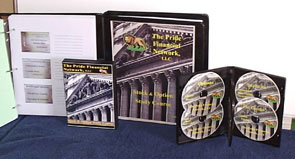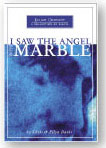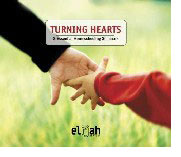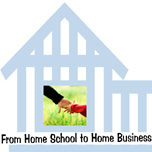
E-journal April 5, 2007 |
Charting a Course for Each Child The I.E.P. (Individualized Educational Program) So far, we have encouraged you to give thought to your family’s unique vision and purpose and to try and determine the individual interests, concerns, talents, or abilities the Lord has given each of your children. The next step is to consider the responsibilities each child is likely to have as an adult. Adult life consists of three basic arenas: (1) Public (situations, relationships, and interactions outside of our immediate family), (2) Family (interactions with those related to us), and (3) Private (our inner spiritual, emotional, and mental life). Each of these arenas has its own set of demands and responsibilities. We can think of these adult arenas in terms of “roles.” Once we know each child’s probable future roles, we can concentrate on the relationships, skills and information that would be most helpful in assuming the responsibilities required by each role. Here are adult roles your children are likely to have: ∙ Child of God role (includes life purpose, calling, ministry) When we look at our children’s futures in terms of the roles they may play, it helps us focus on the relationships, skills, and information they should acquire. For example, if we believe our sons will become fathers one day, it would be to their advantage to learn about fatherhood and child rearing. If we believe our daughters will someday be employed, we can help them learn skills consistent with their God-given abilities that will be useful to them as adults. The more specific we can be about our children’s future roles, the easier it becomes to identify what we want to impart to them. Authors Linda and Richard Eyre in Teaching Your Children Responsibility explain that responsibility means “to become mature in the sense of being responsible to family, to self, to society. It means being responsible for all aspects of our lives and our situations; for our talents, for our potential, for our feelings, for our thoughts, for our actions, for our freedom. Responsibility is not the result of maturity, but the cause of it—and a major responsibility of parents is to teach responsibility.” “If there is no plan, no philosophy of life, there can be nothing but conflict between the three primary arenas of life. It is the parents job to raise an employable child. It’s the parents’ job to raise a marriageable child. And most important, it’s the parent’s job to raise children who are able to be used by God to fulfill God’s purpose for each child when that child reaches adulthood. It’s the parents’ job to establish a plan that will train a child in the skills he or she will need to be a responsible adult.” Back to the IEP Once you have given some thought to your family’s mission and purpose, to each child’s future public, personal, and family life, and to the individual interests, concerns, talents, or abilities the Lord has given your children, you are in a position to think about the relationships, life skills, and academics you feel are appropriate for each child. This doesn’t have to be intense or complicated, just begin by jotting down the areas that are important to your family. In the chart below we have listed the areas that are important to us, but that doesn’t mean what we consider important needs to show up on your list. You want to develop a list that is specific to your family’s mission and purpose.
As you can see, the three areas on our list are interrelated. For example, under Relationships we have “With Others,” under Life Skills we have “Social Skills,” and under Information we have “Reading, Writing, and Speaking.” The Relationships column would mainly deal with developing biblical perspectives and attitudes toward relationships with others. The “Social Skills” in the Life Skills column would have more to do with specific ways of relating to others such as developing conversational skills, being sensitive to the moods of others, learning proper ways to persuade and influence, demonstrating poise and tasteful fashion sense, etc. However, many of these social skills are dependent on mastering the Information involved in using proper grammar when speaking and writing, having the foundational knowledge to have something worth sharing with someone else, and so forth. As a general rule, you would focus on relationships, discipline, good work habits, basic skills, and foundational academics (reading, writing, and arithmetic) with younger children. By the high school level, parents usually have a feel for whether their children should go to college, attend a trade school, or simply enter the job market; so the high school years can be a time of mastering independent living skills and pursuing academics to the intensity required by their future plans. At this stage, children who have had a broad academic foundation and who have been allowed to pursue their interests in-depth should be able to teach themselves with a minimum of oversight from you. What is a Family. This is one of the best books we have ever read. We re-read it periodically, and each time are brought to tears—tears of longing because it so perfectly expresses what we want our family to be like. Edith Schaeffer shares how the family is meant to be the birthplace of creativity: a center for the formation of relationships: a museum of wonderful memories that provide a hedge of protection around our children; an educational control; a perpetual relay of truth; and more. For the Family’s Sake. Edith’s daughter Susan Schaeffer Macaulay takes up where her mother left off. By showing the power a godly home can have in a child’s life, she challenges every one of us to treasure the precious time we have at home with our children. For the Children’s Sake.
Susan Schaeffer Macaulay continues to follow in her mother Edith Schaeffer’s footsteps, and in this book describes how to develop relationships filled with grace, beauty, and love. She views education as “the diet that opens doors for each child to build a relationship with God, other persons, and the universe.” Discover Your Children’s Gifts by Don & Katie Fortune. Part of training our children is discovering who God created them to be and the “works” He created them to do. This book looks at the spiritual gifts latent in each child and explains how parents can recognize and best develop these gifts for useful service. Based on Proverbs 22:6 and Romans 12: 6 - 8, it discusses how gifting affects communication, career possibilities, and more. Discover Your Child’s Learning Style by Mariaemma Willis and Victoria Kindle-Hodson. The New Birth Order Book by Kevin Lehman.
Is your child the firstborn, a middle child, or the “baby?” Birth order and gender have a powerful effect on personality and aptitude. This book discusses how we are shaped by our place in the family. If you haven't had a chance yet to tell me what home schooling means to you, please GO HERE NOW. It will just take you a few minutes and your input is invaluable to me. Thanks! WHAT HOME SCHOOLING
|
The next Big Seminar is in Atlanta on April 27th through 29th. and leading up to it Internet marketing Expert Armand Morin is conducting a series of free training calls. The information shared on these calls is worth its weight in gold. You can participate in the calls at no charge, and there is no obligation to attend The Big Seminar to listen in on the calls. The series will end on April 19th...register here now...you don't
want to miss a single call! SALE PRODUCTS!
Limited Quantities
This book represents the best of 15 years of Elijah Company articles. Find our more HERE>> Turning Hearts: Davis Seminar Set (8 CDs)
|
General Resources
The Seven Habits of Highly Effective People by Stephen Covey. Covey’s ideas are so widely circulated that if you don’t read his book, you’ll be at a disadvantage when people start talking about concepts from the book like “win-win” and “synergy.” But that’s not the real reason to read his book. The real reason is that it is one of the absolute greatest distillations of the concepts that it takes to move toward success and effectiveness in every area of life, including relationships.
The Seven Habits of Highly Effective Families by Stephen Covey. Covey defines success in relationships as "a beautiful family culture" and encourages every parent to do some soul searching to become aware as to what really is priority in life. Then, he suggests we put "first things first." Most of us really want to have family come first, but doing that is often easier said than done. In this book, Covey clearly points out the essentials...such as establishing effective communication lines through family meetings and one-on-one talks with the kids. One of the most transforming things in this book is his description of how to create a family mission statement. This becomes a guiding principle of family life and was invaluable to our familyl as the children were growing up.
A Simple Choice by Deborah Taylor-Hough. We consider all of the resources above absolutely essential, because they each take a different approach to discovering the things that really matter in life. Read this book first, because it touches lightly on many topics the other resources tackle in detail. It begins by helping you develop a family mission statement, then leads you through practical ways to live out your priorities in your finances, in your home management, and in your family life.
Margin by Richard Swenson. We are convinced that home schooling succeeds or fails depending on the “margin” we build into our lives. Margin is the space that should exist between us and our financial, emotional, spiritual, and physical limits. It is the time to build relationships, to reflect on life, to live deliberately and unhurriedly. It is the money to invest in important things. It is the emotional reserve to love, laugh, and relax. It is the time to do what you value most. This book discusses how we crowd margin out of our lives and what we can do to regain it.
The Overload Syndrome by Richard Swenson picks up where Margin leaves off, explaining the pressures of our culture that are taking a toll on all that we are and do. Written in the form of “prescriptions” to counteract the life-draining, health-damaging effects of overload, this book can truly restore health, save marriages, reconcile children, and bring back the joy of living.
Restoring Margin
to Overloaded Lives is a workbook that helps you examine your life to find out where your “overloads” are; how you seem to keep accumulating them; and what you can do to eliminate them.
Any article appearing on this website may be copied or forwarded electronically provided that proper credit is given and that the article is not substantively modified.
No article may appear in whole or in part in a publication sold for profit or as part of any commercial endeavor without the written consent of Home School Marketplace. Any reprint must include an acknowledgement of where it came from and the sentence "Sign up for the Home School Marketplace newsletter at www.homeschoolmarketplace.com."
© Copyright 2007. Home School Marketplace, 1053 Eldridge Loop, Crossville, TN 38571.






